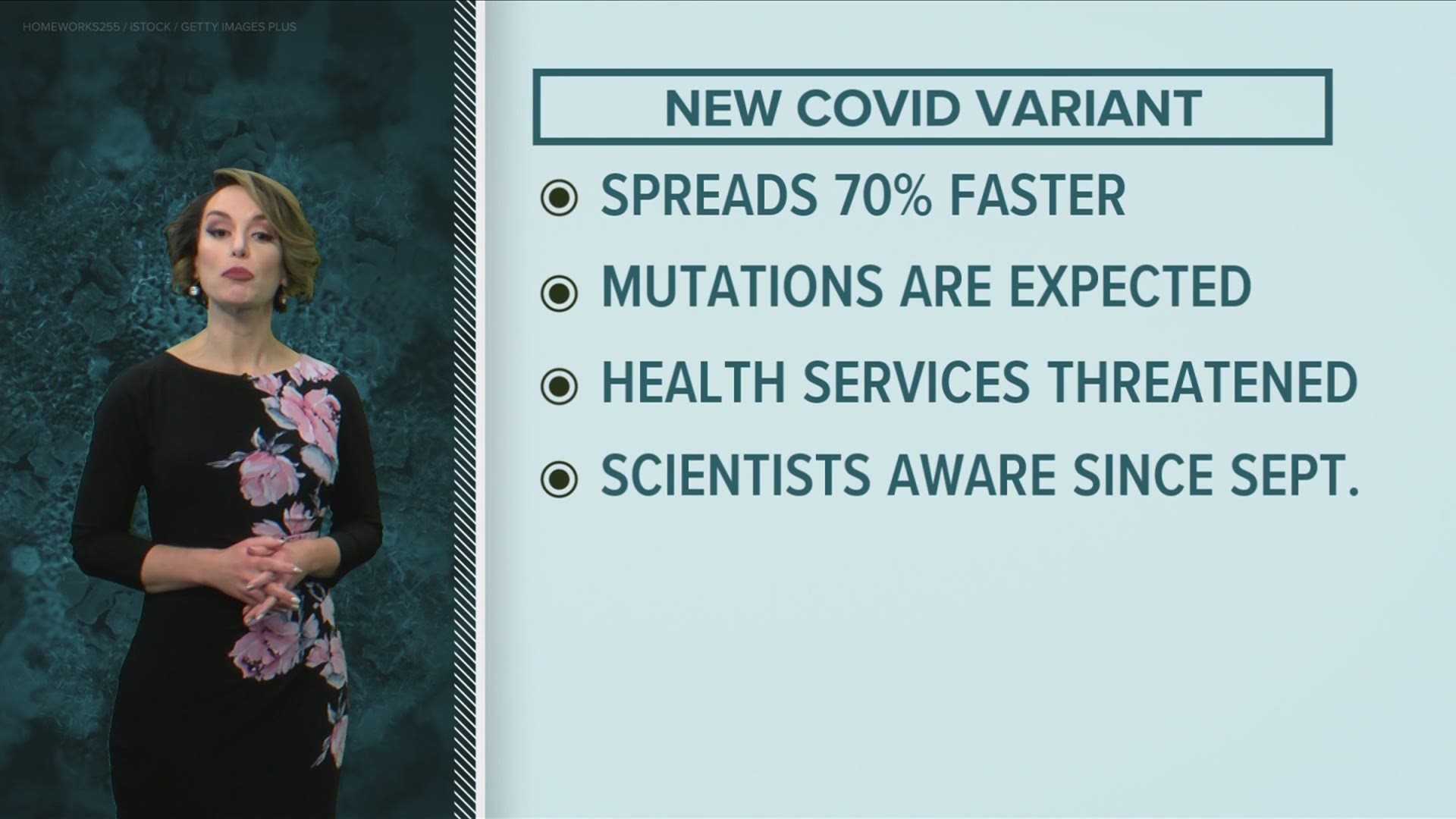All eyes are on Britain as new restrictions are placed on the country's residents after the spread of a new and seemingly more contagious spread of coronavirus.
Over the weekend, Prime Minister Boris Johnson said early indications are that the variant is 70% more transmissible and is driving the rapid spread of infections in the capitol and surrounding areas.
Scientists do not believe that this newest strain of COVID-19 is more deadly. They also do not believe it will be resistant to the current two approved vaccines from Pfizer and Moderna.
Mutations of coronavirus are quite common, but this one is cause for concern because of the suspected rate of transmission.
Stocks fell on Monday over the news of the potentially more infectious strain. Countries around the world have restricted travel from the United Kingdom, raising worries that the economy is about to take even worse punishment.
Viruses naturally evolve as they move through the population, some more than others. It’s one reason we need a fresh flu shot each year.
New variants, or strains, of the virus that causes COVID-19 have been seen almost since it was first detected in China nearly a year ago.
According to ABC News, Patrick Vallance, the British government’s chief scientific adviser, said that the strain “moves fast and is becoming the dominant variant,” causing over 60% of infections in London by December.
The strain is also concerning because it has so many mutations — nearly two dozen — and some are on the spiky protein that the virus uses to attach to and infect cells. That spike is what current vaccines target.
“I’m worried about this, for sure,” but it’s too soon to know how important it ultimately will prove to be, said Dr. Ravi Gupta, who studies viruses at the University of Cambridge in England. He and other researchers posted a report of it on a website scientists use to quickly share developments, but the paper has not been formally reviewed or published in a journal.

